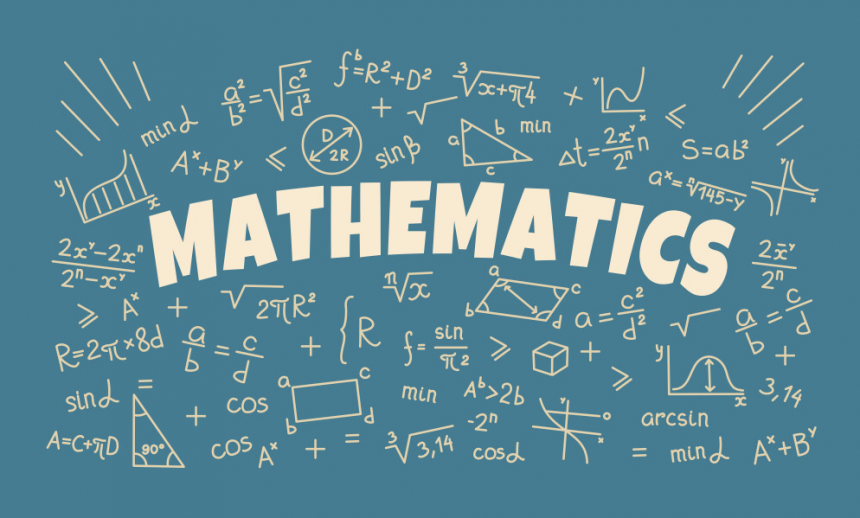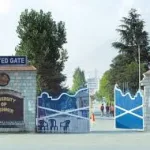Kashmir, a region long renowned for its intellectual prowess and cultural diversity, is experiencing a concerning drop in mathematics, one of its main academic fields. Some of the best brains in the valley once studied and taught mathematics, a prestigious topic that is gradually losing ground. Not only does this decline jeopardize the academic future of the region, but it also poses a greater risk to the general intellectual development of the students.
Addressing these underlying variables is crucial to reversing this worrying trend.The extreme disregard that mathematics has received in the local educational system is one of the main causes of the subject’s collapse in Kashmir. Subjects like languages and the social sciences, which seem more profitable or simpler to teach, have gained increased attention from educational institutions over time. Despite the obvious importance of these areas, mathematics’ marginalization has had far-reaching effects.
Numerous students have found it challenging to understand more complex mathematical topics later in their academic careers due to inadequate fundamental instruction in the early grades. Without a solid foundation, students grow afraid of math, which prevents them from exploring and improving the subject further.
Another factor contributing to the reduction is a lack of enthusiastic and skilled math teachers. Many schools, particularly in rural regions, depend on teachers who lack the necessary training or expertise in other fields. This leads to a vicious loop in which students are not only demotivated but also denied the support they need to succeed in mathematics.
Furthermore, the emphasis on memorization rather than critical thinking exacerbates the problem in places where qualified math teachers are available. Sometimes, teachers urge students to memorize methods and formulas without understanding the underlying ideas. This method further distances individuals from the subject by limiting their capacity to apply mathematical ideas to practical contexts.
The outdated mathematics curricula in many institutions have also contributed to its decline. Particularly in disciplines like engineering, data science, economics, and artificial intelligence, the curriculum is frequently out of step with the demands of the contemporary labor market. Due to an educational system that has not kept up with global advances, Kashmiri children are falling behind in a world where analytical skills and technical breakthroughs are critical.
While other regions are embracing cutting-edge teaching strategies, using technology, and offering courses on applied mathematics and contemporary statistical techniques, Kashmir’s educational system continues to operate under an outdated model that is out of step with the demands of the twenty-first century.
There is a conspicuous lack of assistance for pupils who want to study mathematics in greater detail outside of the classroom. There aren’t many mathematics groups, contests, or workshops in Kashmir that promote healthy academic rivalry and a love of the subject. These platforms play a crucial role in nurturing young talent, enabling students to challenge themselves and receive recognition for their skills.
Furthermore, there is a dearth of career guidance that emphasizes the numerous prospects in disciplines like financial mathematics, encryption, and actuarial science. A solid foundation in mathematics can lead to a variety of profitable and intellectually challenging jobs, which many students are unaware of. They are less likely to study mathematics beyond the foundational subjects taught in school if they lack this understanding.
There is a rising belief in many Kashmiri homes that mathematics is an overly challenging subject with little real-world applicability. This cultural perspective discourages students from dedicating their time and energy to learning the subject. Instead, the focus often shifts to disciplines such as economics or the arts, perceived as easier to excel in, thereby devaluing mathematics.
In addition to preventing pupils from reaching their greatest potential in the subject, this social pressure also plays a part in the region’s overall decrease in mathematics education.
It is impossible to overlook the continuous political unrest in Kashmir as a contributing cause to the general deterioration of educational performance, particularly in mathematics. Frequent school closures, disruptions to academic calendars, and restricted access to educational resources due to strikes, curfews, and internet shutdowns have negatively impacted students’ ability to make steady progress in any subject, particularly one as cumulative as mathematics.
Economic difficulties also come into play. Families facing financial difficulties often prioritize short-term financial demands over long-term educational commitments, thereby limiting access to advanced study materials, individual tutoring, or coaching that could aid pupils in excelling in arithmetic.
The Path Ahead
All parties involved must work together to reverse this slide. The government must first give revising the math curriculum top priority in order to make it more intriguing and relevant. To guarantee that there are competent teachers in every part of the region, investments in teacher training programs are crucial. Additionally, rather than emphasizing rote memory, schools should stress the value of comprehending mathematical concepts.
Parents and communities must change the way they think about mathematics on a social level. We should view mathematics as a tool for problem-solving, critical thinking, and opening up new professional prospects, not as something to dread or shun.
In order to assist students in seeing the fascinating uses of mathematical knowledge, educational institutions should also fund extracurricular activities that stimulate interest in the subject, such as math clubs, Olympiads, and coding boot camps.
Above all, we should make persistent efforts to guarantee continued education, regardless of political or economic obstacles. Kashmir can recover its intellectual legacy and return mathematics to its proper position in academia with the correct strategy. Kashmir can halt the collapse of mathematics and even turn it into a chance for a comeback by tackling these underlying issues and cooperating. Future innovators and intellectuals in the valley rely on it.
(Author is Assistant Professor, Department of Mathematics, Faculty of Science, Sakarya University, Turkey and Former Postdoc IIT Kanpur. Email: [email protected] & [email protected])








